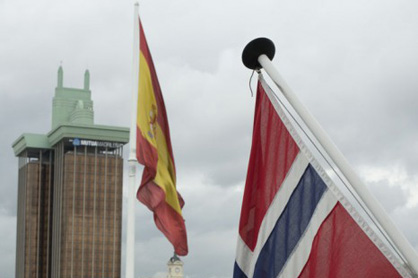Reducing disparities, strengthening cooperation
 160 R&D projects in Energy and Environment companies, 38 projects to strengthen the NGO sector in its social commitment, 200 grants to study in Norway, Iceland and Liechtenstein, more than 80 scientific research projects, 10 million euros to fight against gender-based violence and the economic dependence behind it, four million to culture… These are the destination of the EEA Grants in Spain.
160 R&D projects in Energy and Environment companies, 38 projects to strengthen the NGO sector in its social commitment, 200 grants to study in Norway, Iceland and Liechtenstein, more than 80 scientific research projects, 10 million euros to fight against gender-based violence and the economic dependence behind it, four million to culture… These are the destination of the EEA Grants in Spain.
01.09.2014
Reducing economic and social disparities in Europe and strengthening cooperation. Norway, Iceland and Liechtenstein are embarked upon this task through the EEA (European Economic Area) Grants. The EEA Grants are the contribution of the three countries to the European development under the agreement with the EU to be partners in the internal market but also to share common values and responsibility to promote equality of opportunity, tolerance and environmental and economic sustainability.
Just for the period 2009-2014, almost 1,8 billion has been set aside under the EEA and Norway Grants channelled through different programmes in 16 EU countries in Central and Southern Europe, among them in Spain, with 45 million. The key areas of support in Spain are green innovation and sustainable development, scientific research and scholarships, NGOs, women empowerment and cultural heritage.
Projects in progress range from initiatives to improve energy efficiency or to find new renewable fuels to training for female managers or entrepreneurs; from efforts to establish links between Spanish NGOs in order to broaden their assistance to grants for scientists to develop their research in the donor countries. Without forgetting financing for extremely interesting cultural projects.
The main difference between traditional European funds and the EEA Grants is, apart from the donor countries, where the money goes. Norway, Iceland and Liechtenstein funds are not for huge road infrastructure or public work, but for small projects which can change a person’s life and contribute to building a better society, on areas where there are clear needs in the beneficiary countries and that are in line with national priorities and wider European goals. The aim is not only to support the cohesion and to reduce social and economic disparities but also to strengthen bilateral relations and to open new and long-lasting opportunities for citizens and companies.
The EEA Grants history goes back to 1994, when the Agreement on the European Economic Area –linking EU and Norway, Iceland and Liechtenstein- was signed. The Financial Mechanism (EEA Grants) started that same year and since then, the funding amount and beneficiary countries have been increasing. Reducing disparities and strengthening cooperation is another –and effective- way of building a better Europe.